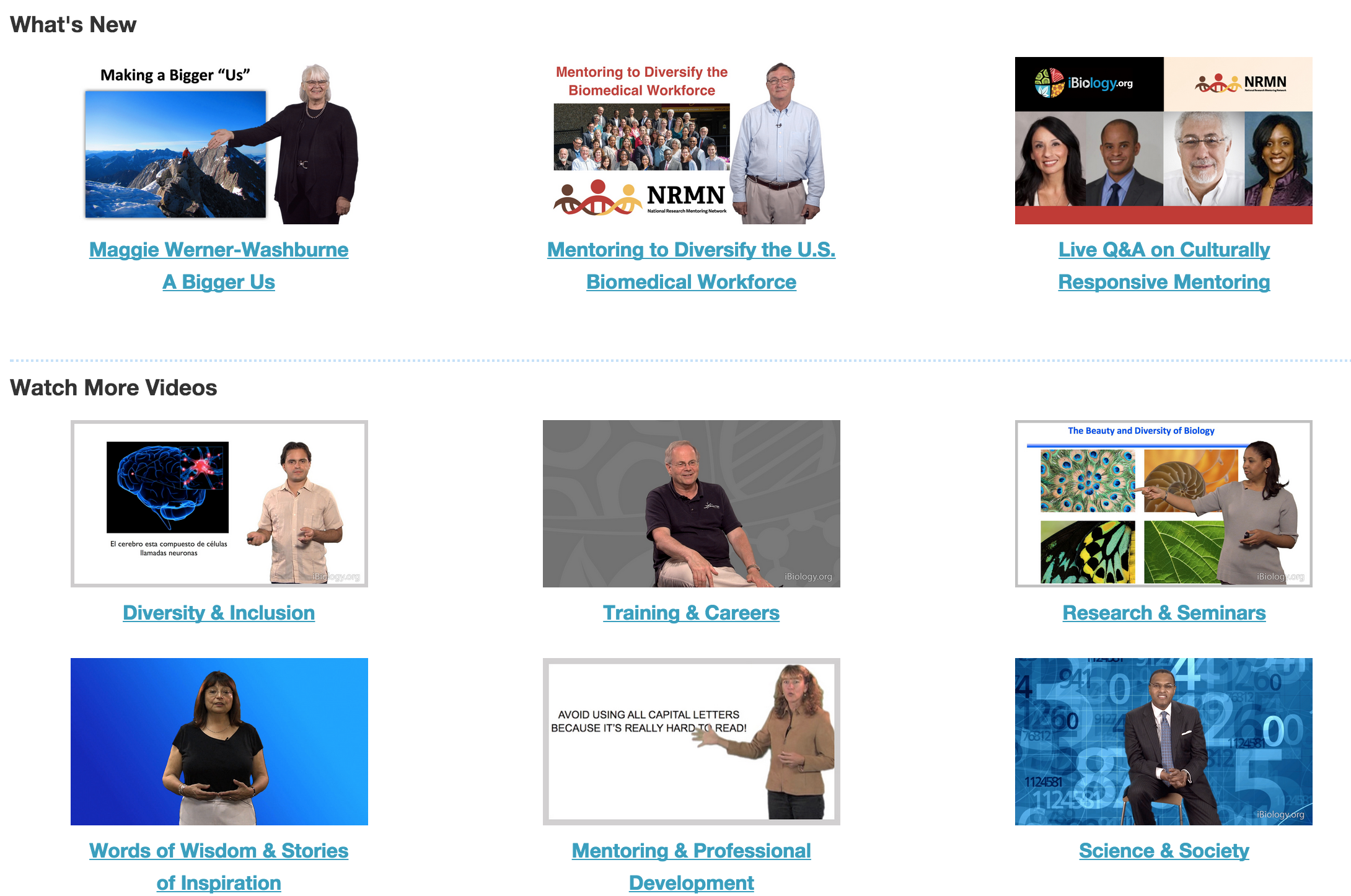 NRMN offers an archive of video content through a unique partnership with iBiology.org.
NRMN offers an archive of video content through a unique partnership with iBiology.org.
iBiology produces free online videos about the latest research in the life sciences, as well as the personal stories and opinions of the people that make up the scientific workforce. iBiology’s videos typically feature leading researchers giving seminars or short talks about their science as well as notable words of advice from their experiences as scientific professionals. As part of their partnership with NRMN, iBiology has created a special archive of videos that showcase the achievements of successful scientists from a diverse variety of backgrounds, and present critical insight towards answering the call for building greater diversity across scientific research teams and the NIH-funded research workforce at large.
Part of iBiology’s NRMN video archive is a series of short culturally-relevant and culturally-responsive videos it produces exclusively for NRMN on diversity, mentoring, networking and professional development topics that are designed to support NRMN in its effort to advance scientists. The production of these videos entails filming speakers in iBiology’s studios.

iBiology also works with NRMN to produce and host online webinars through Google Hangouts, the first of which, entitled “Mentoring to Diversify the Biomedical Workforce” featuring panelists Dr. Angela Byars-Winston of the University of Wisconsin-Madison; Dr. Kenneth Gibbs, Jr. of the National Cancer Institute; Dr. Joel Oppenheim of New York University; and Dr. Sonia Zárate of the University of San Diego, took place on October 5th and can now be viewed within the video archive here.
NRMN invites you to browse this rich and growing library of videos at http://www.ibiology.org/nrmn.html.
Are there topics you would like to suggest that would be of interest to your colleagues and students? Send your suggestions via email to info@nrmnet.net.
In addition to being a partner of NRMN, iBiology is funded by the National Science Foundation, the National Institute of General Medical Sciences, and the Howard Hughes Medical Institute and supported by the American Society for Cell Biology.